A personal injury can occur in many ways. Whenever one party harms another party, the incident can form the basis for a personal injury suit. However, while the majority of personal injury cases filed in California each year arise from failure to exercise reasonable care, it is also possible for intentional and illegal misconduct to cause a personal injury. Assault is one of the most common examples of this, and it’s important to know your rights after you have been assaulted.
Filing a Personal Injury Claim for Assault in California
The attorneys at Guenard & Bozarth, LLP, have extensive professional experience handling a wide variety of personal injury cases for our clients throughout California, including those filed for acts of violence. If you have been attacked and injured by another person, the state may handle criminal charges against them, but it is up to you to file a civil suit to seek compensation for your damages.
Success with any personal injury case in California requires proving a few key facts:
- The defendant owed a duty of care to the plaintiff.
- The defendant breached this duty of care in some way.
- The breach caused actual harm to the plaintiff.
- The plaintiff’s claimed losses directly resulted from the defendant’s actions and no other cause.
If you are able to establish these facts, you can hold the defendant accountable for the financial losses they inflicted as well as your pain and suffering. When it comes to personal injury claims filed for the assault, the police report of the incident and the findings of the prosecution typically assist a plaintiff in proving liability for all of the harm they suffered.
Claiming Compensation for Assault in California
The criminal case against the defendant filed by the state may result in various penalties, including fines, jail time, and more. A judge may also require the defendant to pay restitution to the victim, but this may not account for the full extent of damages the victim suffered. A personal injury claim can allow the victim to recover compensation for all losses the defendant caused. These may include:
- Medical expenses, both for treatment of physical injuries the defendant inflicted as well as mental health treatment the victim needs in the aftermath of their experience.
- Lost income, if the defendant’s actions resulted in the plaintiff missing work for any period of time and being unable to earn income.
- Lost earning power. If the defendant inflicted a severe injury that causes a permanent disability, the victim might not be able to work in the future. In this case, the defendant would be responsible for all of the income the plaintiff can no longer earn.
- Pain and suffering. California law allows a personal injury plaintiff to claim as much compensation as they believe to be reasonable to reflect the pain and suffering a defendant inflicted. If you suffered severe injuries from assault, especially any resulting in permanent damage, you may recover more pain and suffering recompense than you initially expected.
Success with your personal injury claim for assault in California will require careful attention to detail in gathering evidence and meeting court filing deadlines. When you have an experienced attorney assisting you with your claim, you can focus on your recovery while your legal team manages case proceedings for you. There is a limited time for you to file your case, so it is crucial that you consult an attorney as soon as possible after the assault you experienced.
FAQs
Q: What Is the Lowest Charge of Assault in California?
A: The lowest form of assault that can be charged as a crime in California is simple assault at the Class C misdemeanor level. This charge can pertain to any situation in which a defendant threatened and/or attempted to harm another person but failed to inflict any damage. Simply making a threat against another person in California constitutes assault.
Q: What Are the Penalties for Assault in California?
A: The penalties for an assault conviction depend on the serious nature of the charge. Even at the lowest misdemeanor level, the defendant faces fines and jail time. They will also owe restitution to the victim if they cause any serious harm. At higher levels, penalties can include more substantial fines and incarceration in state prison. The defendant will also face liability for civil damages inflicted on the defendant.
Q: Does California Have a Mutual Combat Law?
A: Some states enforce mutual combat laws that allow two individuals to agree to fight each other consensually without incurring criminal penalties as long as they follow strict rules. For example, most mutual combat states require fights to stop as soon as any injury is visible. California does not have any laws expressly forbidding or allowing mutual combat, so it is possible for two people who agree to fight consensually to not face any criminal charges.
Q: What Compensation Can I Claim if I Have Been Assaulted?
A: If you were illegally assaulted by another party, you have the right to claim recompense for any damages they inflicted. If they physically injured you, they are responsible for your medical bills as well as any income you were unable to earn while you recovered from your injuries. You also have the right to seek reasonable pain and suffering recompense from the responsible party.
Q: Should I Hire a Personal Injury Lawyer After I’ve Been Assaulted in California?
A: It’s a good idea to consult a personal injury attorney as soon as possible after you have been the injured party of any assault. An experienced attorney can help determine whether you have any grounds for civil legal recourse against the defendant and help recover any damages the defendant inflicted. They can also advise you as to how a criminal case against the defendant could impact your recovery.
The attorneys at Guenard & Bozarth, LLP, have years of professional experience helping our clients in California recover from all types of personal injuries, including those inflicted intentionally by others. If you are the injured party of an assault, we can help determine your most viable options for legal recourse. Contact us today and set up a free consultation with our team to learn how we can help you recover.


